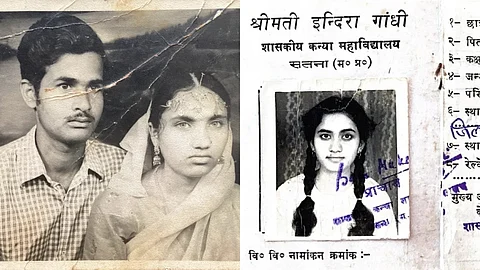
- HOMEGROWN WORLD
- #HGCREATORS
- #HGEXPLORE
- #HGVOICES
- #HGSHOP
- CAREERS
- ABOUT US
- CONTACT US

We live in an age of global integration, where the intermingling of diverse peoples and communities is challenging dominant norms and practices in many societies across the world. Today, disintegration and integration within and between continents, nations, and societies are happening simultaneously — cultural codes are changing, new social structures are emerging, and institutions are struggling to adapt. And it's all happening because of migration.
In the modern age, migration has shaped and reshaped societies across the world. In India, too, migration and population exchange through the ages has changed the demographics of entire regions and altered the course of subcontinental history. Purvanchal Aur Palayan — created by Akash Bharadwaj, Sudeshna Rana, Rini Rayna, Rumana Zabeen, and Yagnaseni Mitra — is an online collection of sixteen stories that trace the patterns of migration in the region.
Although Purvanchal as a region is hard to define because of its complex geography, history, and diverse linguistic landscape, the project focuses on the movement of peoples and cultures from present-day Bihar, Jharkhand, eastern Uttar Pradesh, and parts of West Bengal and Orissa to other parts of the country and vice-versa. "This virtual project is an endeavour to understand how the movement affects the transit in identity, culture, and history within these regions and the world," the curators say.
These sixteen stories are as diverse as the people they capture. In Sudeshna Rana's 'A Tale of Two Women', she recounts how a gendered lineage of migration and mobility shaped the lives of her grandmother, mother, and in turn, herself. In 'Chronicle of Barkha', by the Policy and Development Advisory Group (PDAG), we see how Barkha — a garment shop-owner belonging to the Adivasi Lohra community based in the Gumla district of Jharkhand — migrated to Punjab when she was 15, and how six years of employment as a domestic worker allowed her to save enough capital to finally open her shop. In 'Outliers: Dispatches from the Delta', Yagnaseni Mitra traces the movements of Krishna, a Bangladeshi climate refugee who came to India after cyclone Alia, and Kajol, a woman now working as a maid in Kolkata, to and from the estuarine landscape of the Sundarbans, delving into questions about climate refugees and ecological disasters.
"This is an extremely important, complex, but sadly, under-researched topic that needs a nuanced understanding," Sudeshna says about the impact of migration on women's lives. "When we think of migration, it is easy to get lost in data from policy briefs. We cannot classify these stories under one categorisation because a woman is not a monolith, and every woman's story is affected by migration differently based on her socio-economic and caste location. Payal Kapadia's recent film All We Imagine As Light is a perfect example of this. All three women have their own complicated stories and must navigate their situation as migrants."
Economic hardships, social problems, and environment change are all factors that contribute to migration today. The stories curated in this digital archive are an antidote to the increasing polarisation based on identity that we are currently witnessing across national and international media. In the words of Akash Bharadwaj, "Poorvanchal Aur Palayan in that sense is a ruse for us to learn, unlearn, and relearn the stories of this region which very often go beyond the frontiers of the region and sometimes even the Indian nation".
Purvanchal Aur Palayan is funded by the Serendipity Arts Virtual Grant.
Visit the digital archive here.
If you enjoyed reading this, here's more from Homegrown:
The 'Museum Of The Mundane' Is Archiving Personal Histories Through Materiality & Spaces
Aakriti Chandervanshi’s Archival Photoseries Examines The Hidden Inner Selves Of Women
Museums Of Our Own: Archival Projects Documenting South Asia's Family Histories
